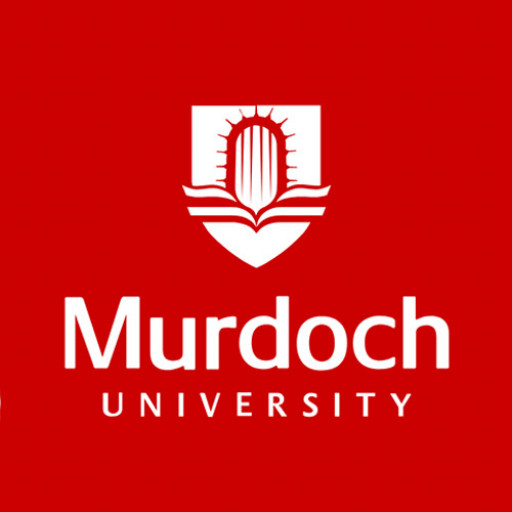Photos of university / #qutrealworld
The Master of Psychology (Clinical) at Queensland University of Technology (QUT) is a comprehensive and highly regarded graduate program designed to prepare students for professional practice as clinical psychologists. This program combines rigorous academic coursework, practical clinical training, and research components to ensure graduates are equipped with the essential knowledge, skills, and ethical standards required to make meaningful contributions to mental health and psychological wellbeing. The curriculum covers a broad spectrum of psychological theories, assessment techniques, intervention strategies, and evidence-based practices, emphasizing a client-centered approach to treatment. Throughout the program, students engage in supervised clinical placements, allowing them to develop hands-on experience working with diverse populations and clinical presentations under the guidance of experienced practitioners. QUT's clinical training facilities are state-of-the-art, providing students with realistic and immersive learning environments. The program also emphasizes cultural competence and ethical practice, preparing graduates to work effectively in multicultural settings. Students enrolled in the Master of Psychology (Clinical) benefit from small class sizes, personalized mentorship, and access to leading researchers in clinical psychology. Upon successful completion, graduates are eligible for registration as psychologists with the Psychology Board of Australia, opening pathways to a variety of clinical practice settings including hospitals, community health centers, private practice, and research institutions. The program is committed to fostering critical thinking, lifelong learning, and a commitment to improving mental health outcomes across communities. Graduates of the Master of Psychology (Clinical) at QUT are well-prepared to advance their careers in clinical psychology or pursue further specialization and research opportunities in the field.
Australian Psychological Society (APS); the College of Clinical Psychologists; the Psychology Board of Australia.
- A completed recognised 4-year Bachelor Degree in psychology performed within the previous ten decades and licensed by the Australian Psychology Accreditation Council (APAC) as a 4-year training (or equivalent) program with minimum graduate degree average of 5.5 (on QUT's 7 point scale)
- And
- needs to have achieved a minimum grade point average (in fourth year psychology components ) of at least 5.5 on QUT's 7 point scale.
The Queensland University of Technology offers various financial assistance options for students enrolled in the Master of Psychology (Clinical) program. Domestic students may be eligible for government-funded initiatives such as HECS-Help, which allows students to defer tuition fees through the Higher Education Loan Program. International students are required to pay tuition fees upfront or through payment plans arranged with the university. QUT also provides scholarships and bursaries based on academic achievement, financial need, or specific criteria related to the program or student background. These opportunities aim to ease the financial burden of postgraduate studies and enable a diverse range of students to access high-quality education in Clinical Psychology. Additionally, students are encouraged to seek external funding sources, including professional associations, government grants, and charity organizations relevant to mental health and psychology fields. Payment options at QUT are flexible, often including installment plans, which help students manage their finances throughout the duration of their studies. Apart from tuition fees, students should consider costs related to textbooks, study materials, living expenses, insurance, and professional development activities, which are often necessary during clinical placements and internships. The university provides financial counselling services to assist students in planning and managing their budgets effectively. For prospective students, detailed and current information about fees, scholarships, and financial aid programs can be obtained from the official university website or the university’s student financial aid office. Overall, the Queensland University of Technology endeavors to support students financially, facilitating access to postgraduate education in Clinical Psychology while minimizing financial barriers.
The Queensland University of Technology offers a Master of Clinical Psychology program designed to prepare students for a career as a registered clinical psychologist. This postgraduate program combines comprehensive theoretical learning with practical clinical training, ensuring graduates are equipped with the essential skills and knowledge required to deliver evidence-based psychological services. The curriculum covers a wide range of topics, including psychopathology, assessment and diagnosis, intervention strategies, ethical and professional practice, and research methods. Students gain hands-on experience through supervised practicum placements in various healthcare settings, allowing them to develop core competencies in individual and group therapy, psychological testing, and client management.
The program typically spans over two years of full-time study, with a structured course schedule that includes coursework, clinical placements, and research components. Admission requirements generally include a relevant undergraduate degree in psychology accredited by the Australian Psychology Accreditation Council (APAC), existing registration with the Psychology Board of Australia (PsyBA), and demonstrated academic and professional suitability. The university emphasizes the importance of cultural competence, ethical practice, and lifelong learning, preparing students to work effectively with diverse populations.
Graduates of the program are eligible to apply for registration as a psychologist with the PsyBA, enabling them to work independently across various clinical settings, including hospitals, community health organizations, private practices, and government agencies. The program's design aligns with national standards for training clinical psychologists and incorporates the latest research and clinical best practices. The university also offers support services such as academic counseling and career guidance to assist students throughout their studies and beyond.
Queensland University of Technology maintains strong industry connections, offering students opportunities for network building, internships, and collaborative research projects. The campus provides state-of-the-art facilities, including dedicated clinical training labs and psychological testing suites. Graduates leave well-prepared to contribute positively to mental health services, advocating for client well-being and applying evidence-based interventions. Continuing professional development and postgraduate options are available for those wishing to deepen their expertise or specialize further in areas such as neuropsychology or health psychology.








